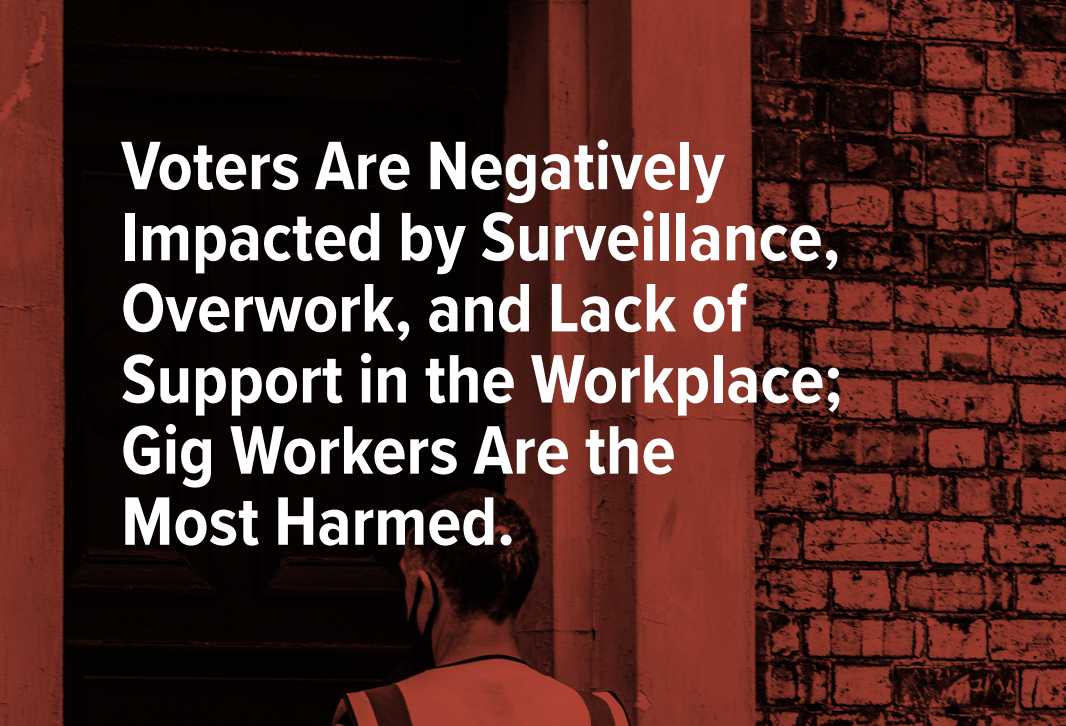Voters Are Negatively Impacted by Surveillance, Overwork, and Lack of Support in the Workplace; Gig Workers Are the Most Harmed
By Nat Baldino, Lorena Roque, Evangel Penumaka, and Kirby Phares
By many standard economic indicators, the U.S. economy is thriving. Since emerging from the pandemicinduced recession, the economy has added more than 13 million jobs while unemployment has remained under 4 percent for 22 consecutive months. The prime age (25-54 year olds) employment-to-population ratio — the percentage of the population employed in the labor market — has been above 80 percent since January 2023, a sustained high not seen since the early 2000s. However, despite our nation being awash in jobs, American workers are still struggling to make ends meet. Unfortunately, too many of the jobs in our economy are poor-quality ones that pay low wages, offer few to no benefits, and require employees to work unpredictable schedules.
Workers are expected to do more with less, and this production squeeze in low-wage industries is often managed through intense surveillance and punishment. Current management systems in industries like retail, service, logistics, and hospitality utilize algorithmic technology like cameras, wearables that track biological data, and more to radically boost profits while keeping costs low. The relentless pace of work and chronic understaffing in these industries squeeze workers into increased productivity at the expense of their physical and mental well-being.
Simultaneously, large companies often “fissure” their workforces by outsourcing labor to further reduce costs. One way to outsource is to misclassify workers who should be considered employees as independent contractors. In doing so, lead companies are no longer responsible for maintaining labor standards, assuring safety, offering benefits, or dealing with on-the-job issues. The culmination of this new business model has solidified the gig economy as an expedient way to shed employment responsibility and increase profits, all while keeping job quality low
To investigate how Americans are experiencing these types of changes in the workplace, Data for Progress and the Center for Law and Social Policy conducted a national survey of likely voters to examine attitudes toward the workplace, workplace surveillance, and support for expanding benefits for gig workers. The survey, conducted among 1,131 likely voters from June 8-13, 2023, finds that likely voters strongly support greater protections for gig workers in the workplace.

